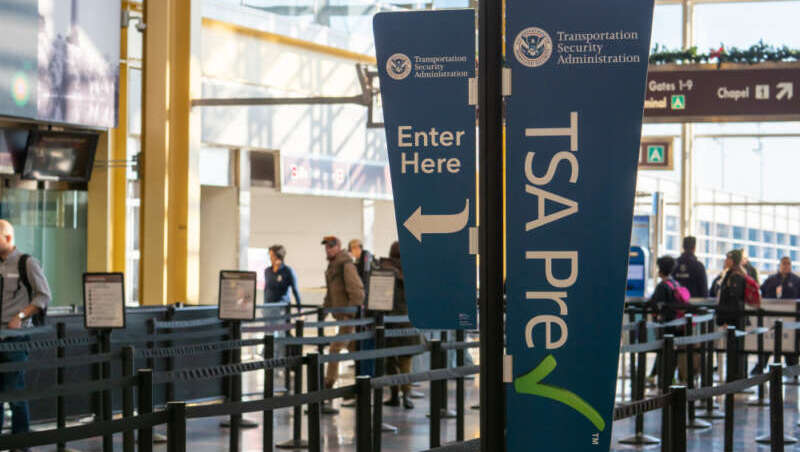
As the United States gears up to host massive global sporting events, lawmakers and witnesses during a House hearing on April 8 sounded the alarm on outdated travel technology and slow visa processing systems that may struggle to keep pace with the expected influx of millions of visitors.
At a House Homeland Security Subcommittee on Transportation and Maritime Security hearing on Tuesday, lawmakers and industry leaders emphasized the urgent need to modernize airport identification systems and travel infrastructure, and emphasized the economic and security risks of falling behind.
“Right now, we have work to do,” Rep. Carlos Gimenez, R-Fla., chairman of the subcommittee, said in opening statements. “Long waits for visas, outdated airport technology and staffing shortages at our ports of entry are slowing us down. These problems are not just frustrating, they could cost us jobs, investment, and global influence.”
The hearing, which focused on improvements at the Transportation Security Administration (TSA) and U.S. Customs and Border Protection (CBP) organization, follow long-term congressional debates on how to improve identity and security screening at U.S. airports.
Geoff Freeman, president and CEO of the U.S. Travel Association (UTA), testified that while recent Federal initiatives – such as President Donald Trump’s task force to prepare to host the 2025 and 2026 FIFA World Cups – are steps in the right direction, more ambitious changes are required to upgrade aging systems and accelerate visa processing.
“Our systems from security customs to air traffic control are outdated and not prepared for this surge,” said Freeman. “It’s not just about inefficiencies. It’s also about global competition. Countries like China, India, and Saudi Arabia are making rapid advancements to their travel infrastructure, and we risk falling behind if we don’t act swiftly.”
According to UTA, the FIFA World Cups are expected to bring up to eight million visitors to the U.S.
Freeman urged lawmakers to consider investments in biometric and autonomous identity verification technologies, noting that fees travelers pay to TSA when purchasing their ticket should cover the cost of expedited visa processing technology.
“The U.S. continues to struggle to welcome international visitors … visa concerns, custom concerns, were top reasons for that,” he said, noting that international travel has yet to return to pre-pandemic levels. “If we want to get all wait times down to 30 days or less … we need to take a new look at how we do this. These fees that foreign travelers pay can cover the cost of creating a new service that processes travelers.”
While Freeman cited policy and staffing issues as barriers, he emphasized that “technology is an even bigger issue.”
Everett Kelley, national president of the American Federation of Government Employees (AFGE), echoed the concerns about workforce challenges but also pointed to recent moves by the Trump administration to eliminate collective bargaining for Federal employees as potential threats to operational efficiency.
“I expect the [TSA employee] attrition rate to go back to where it was, or maybe even lower, because they don’t have any protection, they don’t have any morale,” said Kelley. “We’re talking about now employee burnout, and all these type of things that’s going to happen that’s going to affect wait time.”
Rep. LaMonica McIver, D-N.J., ranking member of the subcommittee, stressed in her opening statement that maintaining a supported TSA workforce is essential to any improvements in traveler screening or visa systems.
“Transportation Security officers are the backbone of our transportation security system as they screen millions of passengers and pieces of luggage every day to keep our skies safe,” she said. “Yet over the past month, President Trump and Secretary of Homeland Security, Kristi Noem, have taken the first steps in dismantling the professional aviation security workforce we have worked so hard to build over the past two decades.”
“Unfortunately, the problems the Trump administration is creating for travel and tourism industry go well beyond TSA,” the ranking member continued. “In just two months since President Trump took office, he has managed to throw [increased travel to the country] all away by detaining tourists, attacking allies, and tanking the economy – the list of countries that have changed their advisories to warn travelers to the United States of potential risk is growing longer by the day.”
